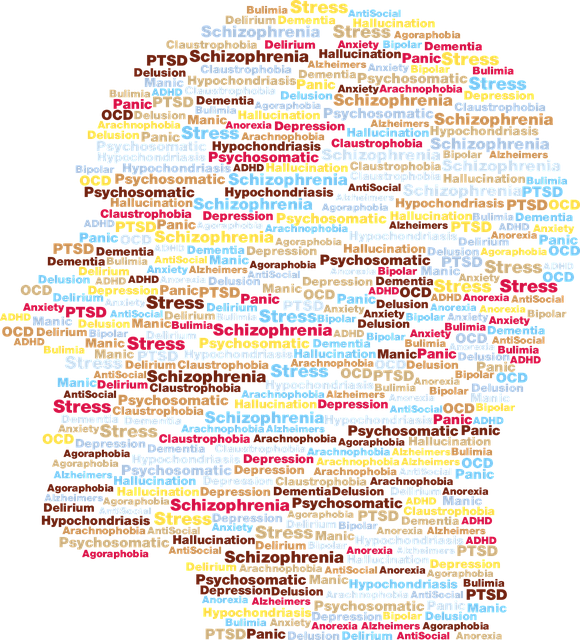Modern workplace wellness initiatives have significantly leveraged technology to offer comprehensive holistic wellness programs that address the multifaceted aspects of employee health. These programs provide immediate access to mindfulness and meditation sessions designed to alleviate stress, as well as guided exercises for mental clarity that fit seamlessly into busy work schedules. They also include live and on-demand yoga and fitness classes to suit diverse physical activity preferences and lifestyles. Nutrition and diet counseling services have been enhanced with technology, allowing employees to track their food intake and receive personalized advice for healthier eating habits. Mental health support has seen advancements with the availability of confidential online counseling sessions with licensed professionals. These initiatives are not just about managing stress but also about fostering a resilient, engaged, and health-conscious workforce, which in turn supports sustained employee well-being and organizational growth. Keywords: Wellness programs, holistic wellness, workplace wellness, stress management, mindfulness and meditation, yoga and fitness classes, nutrition and diet counseling, mental health support.
In the contemporary landscape of healthcare and self-improvement, the synergy between modern technology and time-honored wellness practices is reshaping the way individuals approach their health. This article delves into the intersection of technology and holistic wellness, exploring how workplace wellness initiatives can be significantly enhanced through strategic integration. We will examine how digital tools are elevating stress management programs and mindfulness and meditation sessions, providing new avenues for employees to engage in their well-being. The fusion of yoga, fitness, and nutritional counseling with cutting-edge technology is also being explored, offering personalized and accessible health support. Furthermore, we will discuss the innovative mental health support programs that are bridging the gap between psychological care and technological advancements, ensuring comprehensive and effective wellness programs for a healthier, more balanced workforce.
- Integrating Technology into Holistic Wellness Programs for Enhanced Workplace Health
- Leveraging Digital Tools to Elevate Stress Management and Mindfulness Practices
- The Role of Yoga, Fitness, and Nutritional Counseling in Modern Wellness Initiatives
- Innovative Mental Health Support Programs: Bridging Psychological Care with Technology
Integrating Technology into Holistic Wellness Programs for Enhanced Workplace Health

In the evolving landscape of workplace wellness initiatives, the integration of technology has become a pivotal element in enhancing holistic wellness programs. Advanced technologies like mobile applications and virtual reality offer employees access to a wide array of resources including mindfulness and meditation sessions tailored to their individual schedules, promoting mental clarity and stress relief directly within the work environment. These digital tools often feature guided meditations and breathing exercises that can be performed in moments of heightened stress, providing immediate support for emotional well-being. Furthermore, workplace wellness initiatives now incorporate yoga and fitness classes, which are streamed live or available on-demand, allowing employees to engage in physical activity that suits their personal pace and preferences. This seamless blend of technology with traditional wellness practices ensures that employees have the opportunity to participate actively in their health and well-being, regardless of geographical constraints or busy schedules.
Beyond physical exercise, holistic wellness programs also leverage technology for nutrition and diet counseling services. These interactive platforms enable individuals to track their food intake, receive personalized nutritional advice, and monitor progress towards health goals. Such technological enhancements make it easier for employees to make informed choices about their eating habits, which is a critical component of overall wellness. Mental health support programs have also benefited from technological advancements, offering confidential online counseling sessions with licensed professionals, creating a supportive environment where employees can address mental health issues with the utmost privacy and care. By adopting these holistic approaches to wellness, employers can create a more resilient, engaged, and healthy workforce, setting the foundation for long-term employee well-being and organizational success.
Leveraging Digital Tools to Elevate Stress Management and Mindfulness Practices

In an era where technology permeates every facet of life, integrating digital tools into wellness programs has become a cornerstone for holistic health. Corporations are increasingly adopting workplace wellness initiatives that leverage sophisticated apps and wearable devices to monitor stress levels, promote mindfulness, and facilitate regular meditation sessions. These tools offer personalized feedback and real-time support, enabling employees to manage stress effectively by providing them with actionable insights into their mental states. Furthermore, these digital platforms often include yoga and fitness class schedules, allowing users to engage in physical activities that complement the mindfulness practices.
Beyond stress management, holistic wellness programs are enhancing their offerings through technology by incorporating nutrition and diet counseling services. These virtual consultations connect individuals with experts who can provide tailored meal plans and guidance on maintaining a balanced diet, thereby supporting overall mental health. The integration of artificial intelligence in these programs allows for the analysis of eating habits and personal preferences, ensuring that recommendations are not only healthy but also enjoyable and sustainable. This comprehensive approach to wellness ensures that employees have access to a suite of services designed to nurture their well-being, from physical fitness to mental clarity, fostering an environment where health is a priority.
The Role of Yoga, Fitness, and Nutritional Counseling in Modern Wellness Initiatives

In contemporary wellness programs, yoga and fitness classes play a pivotal role in fostering holistic health. These sessions are designed to enhance flexibility, strength, and balance, contributing to both physical and mental well-being. Employers increasingly incorporate such activities into workplace wellness initiatives as part of a broader strategy to support the total health of their employees. Beyond physical exertion, these programs often include mindfulness and meditation sessions that help individuals manage stress more effectively. This integration of mind-body practices within wellness initiatives underscores a growing recognition of the importance of mental health support in maintaining overall wellness.
Nutrition and diet counseling are equally integral to modern holistic wellness programs, as they address the foundational aspect of health – nourishment. These counseling sessions empower individuals with knowledge about how their diet impacts their health, offering personalized guidance to make informed food choices that support their wellness goals. By combining yoga, fitness, and nutritional counseling, wellness programs offer a comprehensive approach to health, addressing the various facets of well-being in a coordinated manner. This multifaceted strategy not only promotes physical fitness but also encourages individuals to engage in self-care practices that can lead to a more balanced and healthy lifestyle.
Innovative Mental Health Support Programs: Bridging Psychological Care with Technology

In an era where the pace of life often outstrips our ability to maintain balance, innovative mental health support programs are integrating technology to offer comprehensive wellness solutions. These holistic wellness programs frequently include workplace wellness initiatives that leverage apps and wearable devices to monitor stress levels, encourage regular exercise through yoga and fitness classes, and promote mindfulness and meditation sessions. By providing real-time feedback on lifestyle choices, these digital tools enable individuals to recognize patterns of behavior that may be detrimental to their mental health and make informed decisions towards improvement. Additionally, such programs often incorporate nutrition and diet counseling, utilizing online resources and virtual consultations with healthcare professionals to guide users towards a balanced diet that supports overall well-being. This fusion of psychological care with cutting-edge technology not only enhances accessibility but also personalizes the support each individual receives, ensuring that mental health support programs are as effective as they are necessary in our technologically-driven society.
Furthermore, the integration of these technologies within mental health support programs has led to a more proactive approach to stress management. Users can engage with interactive platforms that offer cognitive behavioral therapy, guided relaxation techniques, and tailored wellness activities. These digital interfaces are designed to be user-friendly, allowing for seamless interaction and providing a sense of community among users who might otherwise feel isolated in their mental health journey. The data collected from these interactions is invaluable, offering insights into the most effective methods of support and care, which can then be used to continuously refine and improve the programs offered. This ongoing cycle of feedback and enhancement underscores the potential for technology to significantly enhance our ability to maintain mental wellness.
In conclusion, the synergy between modern technology and timeless wellness practices has ushered in a new era of holistic workplace health initiatives. By integrating technology into holistic wellness programs, employers can now provide more effective stress management tools and mindfulness sessions to their employees. The fusion of yoga, fitness, and nutritional counseling within modern wellness frameworks underscores the importance of addressing physical and mental well-being in unison. Furthermore, the advent of innovative mental health support programs represents a significant stride in making psychological care more accessible and tailored to individual needs. As organizations continue to explore these integrative approaches, it becomes increasingly evident that the combination of traditional practices with cutting-edge digital solutions is pivotal in fostering a healthier, more productive, and balanced workforce. Embracing this dual-approach in wellness programs is not just a fleeting trend but a sustainable strategy for enhancing overall employee welfare and satisfaction.
